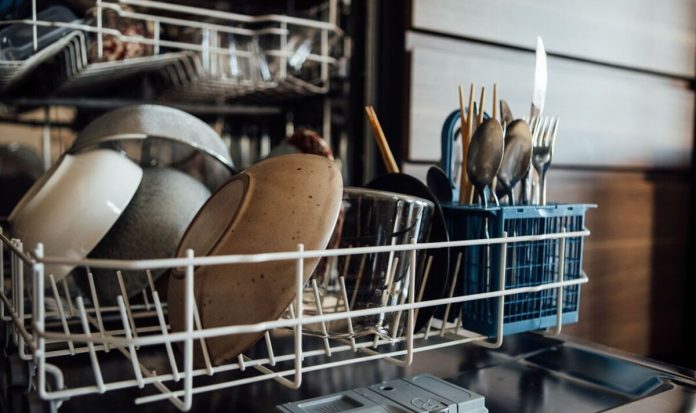There are many reasons why dishwashers may not work properly. Some have quick and easy fixes, others may require device repair.
To help, Andrea Pesce, appliance expert at Domestic & General, has revealed the “common mistakes” to “never make” and how to restore a dishwasher to its former top condition.
1. Not cleaning the dishwasher often enough
In order for the dishwasher to perform at its best, the machine itself needs regular maintenance in the form of cleaning, particularly the spray arms and filter.
The spray arms are the plastic propellers in the machine that push water at high pressure to clean the dishes. The filter sits at the bottom of the machine and catches food. Andrea pointed out that the spray arms and filter are “two of the most important elements in your dishwasher”.
If you find your dishes getting messy, the spray arms may be clogged with dirt and leftover food.
The expert said: “The best way to fix this is to empty the dishwasher – including the baskets and utensil holders – and then clean the arms with an old toothbrush.”
Another reason for dirty dishes is often a clogged filter. Other “warning signs” of this are an unpleasant smell from the machine and gurgling noises.
To fix this, remove the filter and empty out any trapped food before scrubbing with a toothbrush. Finally, give it a quick rinse to remove any last dirt and grime.
2. Squeezing in too many objects
Many want to reduce energy consumption at home, but overloading the dishwasher can often result in another rinse being required.
Andrea warned: “Placing too many pots and pans in addition to regular crockery, glasses and cutlery can cause overloading, which can result in the spray arms not working properly.”
When stacking the machine, make sure that there is enough space between the individual items – they must not touch each other. Try putting smaller items on the top basket and larger items on the bottom basket to make the most of the space.
3. Rinse the dishes before putting them in the dishwasher
If the dishes contain a lot of leftover food, the excess leftover food must be scraped off before loading. However, thorough rinsing is not required.
The expert said, “Dishwashing detergent actually needs some food residue to clean effectively as that gives it something to stick to.” If you normally rinse your dishes before loading them, try to avoid doing this and you may see a noticeable improvement the cleanliness of your crockery and cutlery.”
4. Use too much dishwashing liquid
When it comes to cleaning appliances, Andrea argues that “less is more” when it comes to dish soap, and dishwashers are no exception. When glasses come out of the dishwasher cloudy or cloudy, “that’s probably the problem.”
Using too much detergent not only leaves excess product on the dishes, it also “clogs the appliance over time”. Therefore, keep it to a minimum to avoid repair.
5. Load cutlery face down
It’s common for people to think that cutlery should face up for better cleaning in the dishwasher.
However, the appliance guru pointed out that the downward orientation can actually result in “more effective cleaning” as it positions the cutlery closer to the nozzles, making it easier to remove excess food.
www.express.co.uk
https://www.express.co.uk/life-style/property/1790637/dishwasher-mistakes-to-avoid














